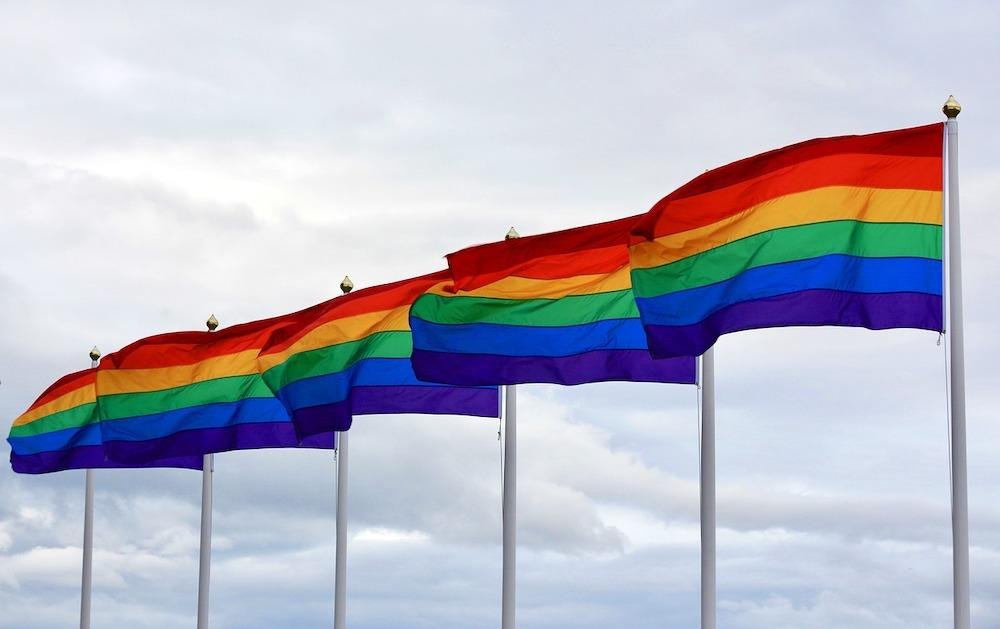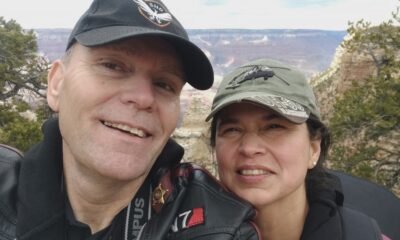Business
LGBTQ+ Individuals Confront Past Wounds in Their Golden Years

Bill Hall, 71, has faced a relentless battle for survival over the past 38 years. Recently, the toll has become particularly daunting.
Diagnosed with HIV in 1986, Hall’s health journey has been riddled with challenges, including depression, heart disease, diabetes, non-Hodgkin lymphoma, kidney cancer, and prostate cancer. Over the past year alone, he has been hospitalized five times due to severe infections and life-threatening internal bleeding.
Hall’s struggles extend beyond physical health. A member of the Tlingit tribe and originally from a small fishing village in Alaska, he experienced profound trauma when he was separated from his family at age nine and placed in a government boarding school. There, he endured years of bullying and sexual abuse, which he says “killed my spirit.”
These early traumatic experiences hindered Hall’s ability to form intimate relationships. He contracted HIV through anonymous encounters in bathhouses, and he has lived alone in Seattle throughout his adult life.
According to the National Resource Center on LGBTQ+ Aging, of the 3 million Americans over 50 who identify as gay, bisexual, or transgender, the majority are single and live alone. This trend is projected to intensify; by 2030, the number of LGBTQ+ seniors is expected to double, with many lacking partners and familial support.
Research highlights an alarming array of challenges faced by this demographic, including elevated rates of anxiety, chronic stress, and various illnesses such as heart disease. Substance use remains prevalent as many seek to cope with their stressors.
This cohort grew up in an era marked by discrimination; every state once outlawed same-sex relations, and homosexuality was classified as a mental disorder by the American Psychiatric Association. Additionally, the devastating impacts of the AIDS crisis exacerbated their trauma, as Hall recounted, “Dozens of people were dying every day.”
As a result, social isolation is all too common among LGBTQ+ seniors. Vincent Crisostomo, director of aging services for the San Francisco AIDS Foundation, indicated that the cumulative grief and trauma have left many feeling unable to connect with others. An AARP survey revealed that nearly half of LGBTQ+ respondents felt isolated, with a similar percentage highlighting a lack of companionship.
For HIV survivors like Hall, embracing aging is laden with complications. Currently, approximately 1.2 million individuals in the U.S. live with HIV, with about half over the age of 50. This number is anticipated to rise to 70% by 2030.
Christopher Christensen, 72, of Palm Springs, California, who has been HIV-positive since May 1981, is actively engaged with local organizations supporting survivors. He noted that many who contracted HIV never envisioned growing old, leading to a lack of preparation for later life challenges.
Many long-term HIV survivors now grapple anew with deteriorating health, prompting feelings of post-traumatic stress that reflect years of loss. Jeff Berry, executive director of the Reunion Project, emphasized the compounded difficulties faced by those who have outlived their peers.
Ensuring access to adequate supports that are both LGBTQ-friendly and age-appropriate remains a significant challenge, according to Christina DaCosta from SAGE, the nation’s oldest organization for older LGBTQ+ adults. The lack of community understanding can deepen feelings of loneliness.
Diedra Nottingham, 74, reflects this reality. Living alone in an LGBTQ+-friendly elder housing complex in New York City, she shares her struggle with trust, shaped by her experience of being estranged from her family at a young age. The emotional scars from the AIDS epidemic and the risks posed by COVID-19 add to her isolation.
While Nottingham finds solace in therapy and volunteer support from SAGE, she admits, “I’m lonely.”
Donald Bell, 74, co-chair of the Illinois Commission on LGBTQ Aging, also grapples with loneliness. Living in subsidized LGBTQ+-friendly housing in Chicago, he recounted his sacrifices caring for his elderly parents and his struggle with health issues, including diabetes and heart disease. Despite these hardships, he remains grateful for his life and seeks to serve as a role model for younger generations.
“Aging is a part of life,” Bell concluded. “My past is over, and I must move on.”

















